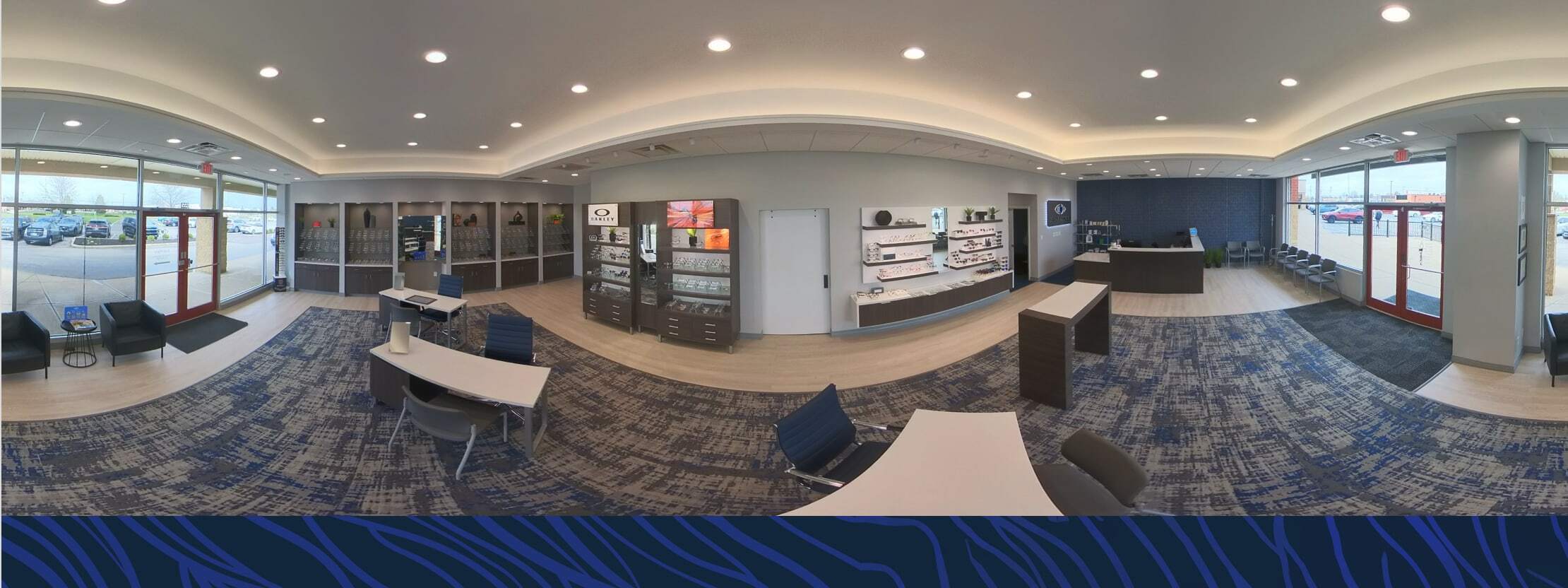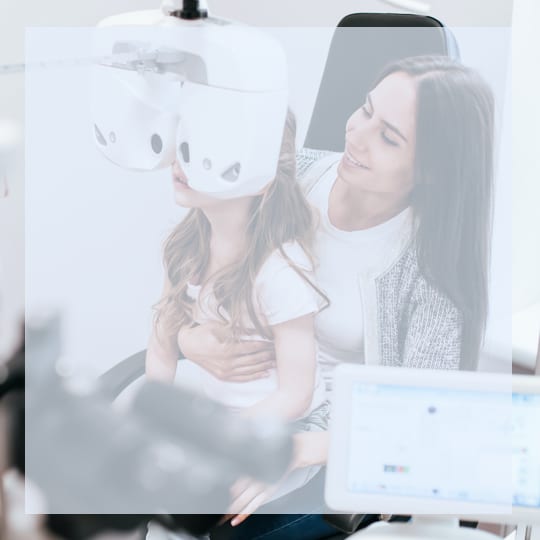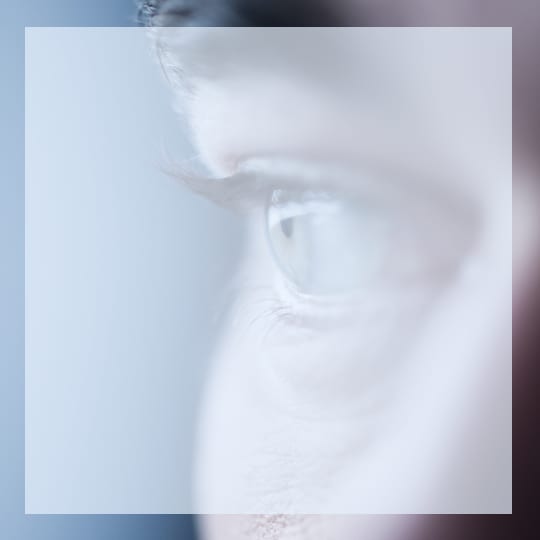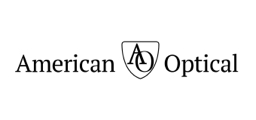

Glaucoma Management in Loveland
Book AppointmentDon’t Give Glaucoma a Chance
Glaucoma refers to a set of diseases that harm the optic nerve. This condition affects over 3 million Americans today. Glaucoma is often associated with unusually high eye pressure, which in turn destroys the optic nerve.
Once the negative impact of glaucoma has occurred, there is no turning back; the consequences are permanent. But there are modern solutions for halting the progression of glaucoma. This means regular eye exams are paramount in slowing down the disease.

Getting Ahead of Glaucoma
Detection and diagnosis are the keys to preventing glaucoma. Accurate diagnosis allows our optometrists to treat the disease effectively. If you are considered high-risk, we take every precaution to make sure we diagnose glaucoma early. 2020 EyeCare conducts a series of specific exams and tests to accomplish this.
Goldmann Tonometry
Tonometry measures the eye’s pressure by gently pressing the front of the eye with a soft probe. We administer numbing drops before the exam to further reduce any discomfort. Readings outside the normal range are a strong indicator of glaucoma, and a sign to take preventative action.
Visual Field Test
A decrease in peripheral vision can be the first sign that glaucoma exists. The optic nerve will commonly lose peripheral vision before the central vision becomes affected. A machine in our exam room will send peripheral light signals and measure your ability to detect them.
Gonioscopy
This exam measures the angle at which the iris meets the cornea. An irregular reading can indicate glaucoma. Numbing drops are administered before a mirrored contact lens gives a reading of the angle.
Are You High-Risk?
Some undeniable circumstances designate a patient as high-risk for glaucoma. Although glaucoma can advance suddenly, you should be diligent in getting annual eye exams if you fall into any of the following categories.
Treatments for Ocular Preservation
The effects of glaucoma cannot be reversed, but careful treatments can slow down or even stop its spread. If our eye doctors confirm that glaucoma is present in your eyes, we want to find a solution immediately. If we decide surgery is the best option, 2020 EyeCare is with you every step of the way.
Glaucoma Medication
Most patients will be prescribed glaucoma medication as the first step in treating the condition. Medications are designed to lower pressure and reduce the impact on the optic nerve, hopefully preventing further damage to your vision.
Laser Surgery
Laser surgery can be used to change the drainage angle of the eye. It can be very dangerous when the optic nerve is subject to high intraocular pressure from a poorly draining eye. The goal is for fluid to flow in and out at a normal rate, and surgery can make this happen.
Traditional Surgery
If laser surgery is not possible, an ophthalmologist will use traditional surgery methods to create better eye drainage. In certain cases, a tiny tube is implanted to further help the eye drain. Our goal is always to reduce pressure on the optic nerve.
Our Location
Find our office in the shopping plaza on the corner of Fields Ertel Road and Montgomery Road. We’re in between the Cricket Wireless and Cosmo Prof, and there is ample free parking available in the plaza.

Our Address
9553 Fields Ertel RdLoveland, OH 45140
Contact Information
- Phone: 513.428.2020
- Email: [email protected]
Hours of Operation
*We’re now open 1 Saturday a month! Please call ahead for availability.
Our Services

Comprehensive eye exams are the first step towards maintaining good ocular health and vision for as long as you can, and we can make that happen.
Learn More
Dry eye disease can make performing everyday activities extremely uncomfortable. At 2020 Eyecare Ohio, we can help you find relief.
Learn More
If you’re tired of dealing with glasses or contacts, LASIK may be a good option to consider, and we’ll be there with you every step of the way.
Learn More
Glaucoma is called the “Silent Thief of Sight” because it can occur without any noticeable symptoms. We’re here to help save your vision.
Learn MoreOur Brands





Our Google Reviews
Our Blog
Scleral Lenses for Dry Eyes: Comparing Contact Lens Options
Contact LensesDry EyesScleral Lenses for Dry Eyes: Comparing Contact Lens Options
Contact LensesDry EyesDry eyes can be frustrating at best and life-altering at worst. From the constant burning […]
Dry eyes can be frustrating at best and life-altering at worst. From the constant burning […]
Eye Pain in the Morning: Is It Time to See an Eye Doctor?
Eye ConditionsEye ExamsEye Pain in the Morning: Is It Time to See an Eye Doctor?
Eye ConditionsEye ExamsWaking up with sore or aching eyes isn’t the best way to start your day. […]
Waking up with sore or aching eyes isn’t the best way to start your day. […]
Are Daily Contacts Better for Dry Eyes?
Contact LensesDry EyesEye CareAre Daily Contacts Better for Dry Eyes?
Contact LensesDry EyesEye CareDealing with dry eyes can be frustrating, especially for those who rely on contact lenses. […]
Dealing with dry eyes can be frustrating, especially for those who rely on contact lenses. […]


